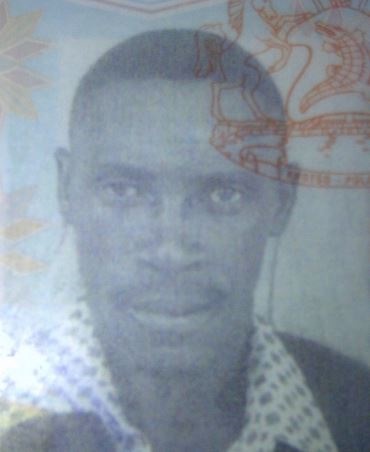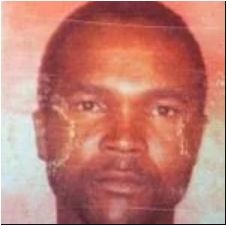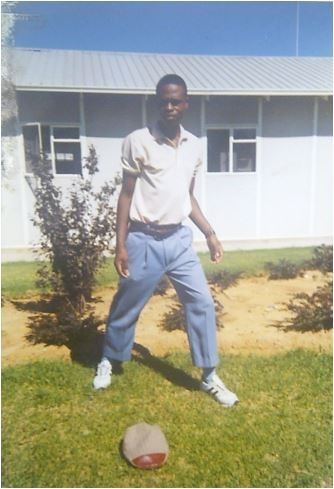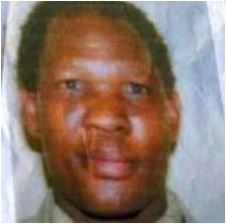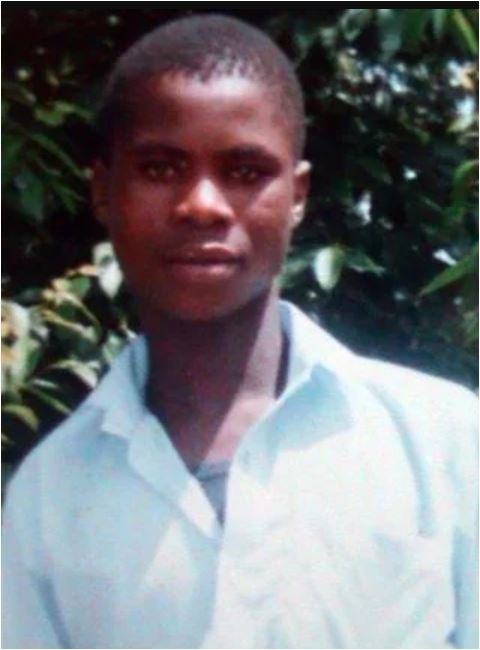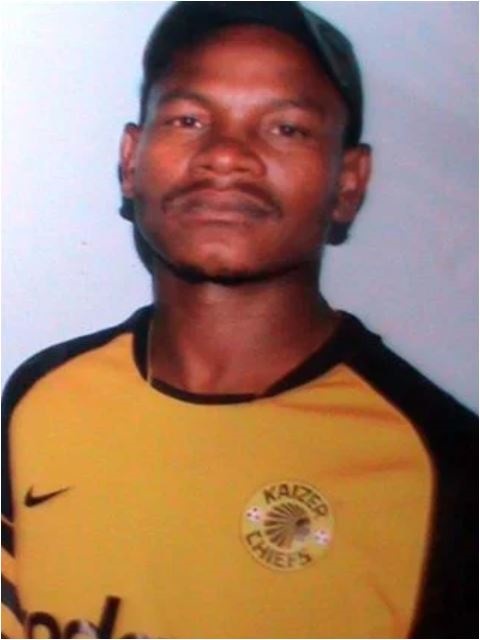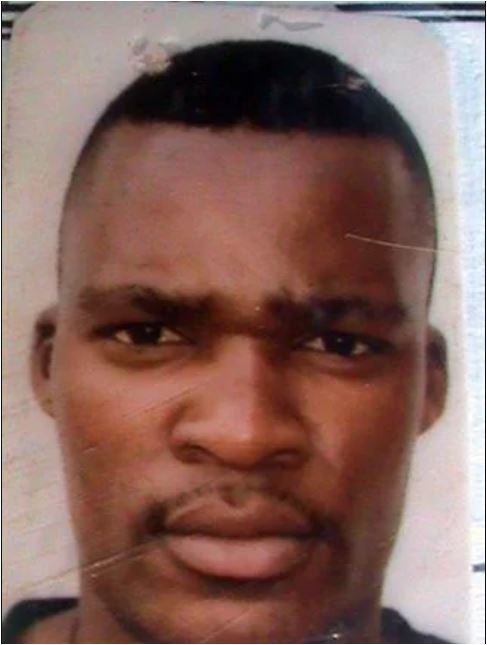
It’s been seven years since 34 mineworkers were shot dead in a burst of police gunfire during a protest at the then Lonmin Platinum’s Marikana operations. Ten people, including security guards and police officers, were killed in the run-up to the mass shootings at two sites around a koppie where workers had gathered during their strike, demanding a minimum salary of R12 500 a month.Much has been said and written about what has become known as the Marikana Massacre, and a commission of inquiry was set up to find out exactly what happened. But there were journalists on the ground when it all went down. This is how they reported on the Marikana Massacre in August 2012.This week City Press went back to Marikana. Read our feature on this ghostly mining town in Sunday’s print edition.
Mafolisi Mabiya (28)
‘My son was very young, that’s all I know,” said Nosajini Mabiya, Mafolisi’s heartbroken mother.
Nosajini said her son’s main priority was to build their home – a two-roomed mud rondavel and a half-finished flatlet.
“My son was proud of his home. He dreamed of building a big house and fencing it. When I think about him, it pains me because I remember all the things he has done for me and all the things he still wanted to do,” she said.
Mafolisi has two sisters, one of whom travelled from Cape Town to mourn her brother at the village near the Mbhashe River in the Eastern Cape.
As his mother spoke, young men from the village were digging the final resting place for their friend.
The miner leaves behind a young wife, Pumeza, and their one-year-old boy, Buhle.
“He was a good father to our son. The anger we have is not directed at anyone, but it’s from the pain we feel,” said Pumeza.
Mafolisi was the only breadwinner in the family.
– Athandiwe Saba
Molefi Ntsoele (40)
It takes almost an entire day of driving on dangerously winding dirt roads snaking almost 3 000 metres up into the Maluti Mountains to reach the village of Ha Tebesi in Lesotho.
From Maseru, you reach the trading post of Semonkong two hours away.
There, you wait until late afternoon for a ride in a beat-up 4x4 that takes you on the final leg of the trip, on a precariously narrow rocky road that passes through tiny villages that cling to the mountain tops like ant hills.
In Maseru people mention one thing and one thing only about Semonkong – the road.
After an hour on a winding, rocky track that would give anyone with a phobia for heights a heart attack, a shepherd looks at our tiny Ford Fiesta and smiles.
“It’s not very far. Behind that snow- capped mountain,” he says.
In the end we cannot reach Ha-Tebesi.
A government official on a site visit says it’s still a further two hours away and there is no way in hell we’ll make it in our car.
Molefi made this long trip once every two months, carrying groceries and provisions for his family.
He was employed by Lonmin as a rock-drill operator at Karee mine in Marikana.
He died on August 16, together with 33 other miners, when police fired on striking workers.
His last journey home was in a helicopter, when his body was airlifted from Maseru to Ha-Tebesi for burial yesterday.
– Lucas Ledwaba
Telang Mohai (37)
The old man’s voice trembles slightly when he relates an incident he will remember forever.
His nephew Telang had come home to Lithoteng Village, Ha-Pita, near Maseru, Lesotho, to visit his family.
He had spent a long month away earning a living at Lonmin mine near Rustenburg, where he was employed as a general production hand.
Telang gave the old man a parcel containing a new pair of brown leather shoes and a green pair of pants.
“Uncle,” Mohai senior recalls his nephew’s exact words, “I want you to be the best-dressed old man in Lesotho.
I don’t want to see any older person dressed better than you.”
These words, Mohai senior says, define the kind of person Telang was, a kind and generous soul who lived for his family.
He loved spending time in the pastures of his home village, working in the fields and looking after his cattle and sheep. But most of all he loved his family, his wife and three daughters. He had been saving to complete a beautiful face-brick house for them on the property of his late parents home where he grew up.
“What has happened is very painful,” said Mohai senior.
“I’ve worked on the mines for 32 years and have been involved in many strikes. In those days, there were many ways of quelling
strikes – tear gas, police dogs, water cannons.
“The police would disperse people so that they would go home and calm down. But this one I’ve never seen in my whole life.”
– Lucas Ledwaba
Andries Ntshenyeho (42)
Andries had been about to quit his job as a rock-drill operator at Lonmin’s Karee mine when he was killed by police.
A father of five, who had toiled on the mines around Rustenburg since 1990, he had been finalising plans to resign and follow his dream – starting a transport company at home in the Gauteng town of Vanderbijlpark.
His son, Thabang, said: “He was planning to buy a 22-seater bus to transport kids to school. He had been saving for the bus for many years. He was going to use the profit there to finance other buses and thereby start a serious transport company.”
Thabang described his father as a “peaceful family man who never partied or drank alcohol. He took good care of us.
He was supportive and came home every month’s end. When he was around, he would spend the whole weekend with the family.”
His deepest desire, his son said, was for his children to go to university.
“He preached it every day. He liked school and seized every opportunity to tell us to study to avoid turning out as he had.
“He would sit me down and tell me about the difficulties, and how they are exploited in the mines.”
Now, Thabang says, he has to put his studies on hold and find a job to provide for his family.
– Sipho Masondo
Matlhomola Mabelane (46)
Matlhomola was on leave when he was killed, allegedly by striking miners.
The security guard at Lonmin’s Karee mine had been called in by his bosses to help as the uprising at the mine began, his weeping
83-year-old mother said this week.
According to reports at the time, Matlhomola was burned to death alongside his colleague Hassan Fundi that Saturday. Mine officials only discovered their bodies the following Monday.
His mother had begged him to stay on leave and not to become involved in the strike.
“I told him not to go but he insisted on going,” his mother said.
“He was dedicated to his job, his family and myself.
“He was loyal. He was supposed to come and see me, as he always did when he was off. I called and called, but he didn’t answer his phone.”
Matlhomola, who is survived by his wife, Linah, and three children with whom he lived in Damonsville, outside Brits, North West, was a “very good son”.
“He looked after me. He was at my service and on call every time I needed him.
“I will never find another son like him. He came to this house literally every Sunday.
“He wanted me to be happy all the time. He was special and everything to me,” she said.
– Sipho Masondo
Papi Ledingoane (24)
Lebo Ledingoane could not bear the trauma of talking about the death of her brother Papi, who was killed by police, along with 33 other miners on August 16.
Speaking from Wonderkop settlement near Lonmin’s Karee mine in Marikana, where her brother worked as an engineering assistant, she said: “The wounds are still fresh. We are not right as a family. No one knows how to handle this. We are all dealing with it in the best way we know.”
Lebo referred all queries to her uncle, Lucas Ledingoane, who began to weep when asked about Papi. “What can we say?
The pain is unbearable. He leaves behind three brothers and a sister, who depended on him. He has a two-year daughter, Tsenolo.”
Lucas said he first heard of Papi’s death when he saw his dead body on the front page of Daily Sun the day after the tragedy.
“You can only imagine how I felt as an uncle,” he said, crying. “He was a responsible young man. The wellbeing of this family rested on his shoulders. We are stranded without him”.
– Sipho Masondo
Van Wyk Sagalala (60)
Van Wyk was supposed to have married his longtime fiancée, Kedineetse Lydia Mohutsane (49), this month.
“I’m hurting, I don’t even know what to say about this loss,” she said at his funeral last Saturday, which was held in the village of Setlagole, outside Mahikeng, North West.
“We had been together for three years.
“He was easy-going and always kept order in the house.”
She last spoke to the father of two, who worked as an equipper at Lonmin’s Karee mine, at 1.40pm on Thursday, shortly before he was killed.
“He told me they’re on the hill, but they’re just sitting there peacefully.
I pleaded with him not to go to the hill again, but he said I should fear nothing.
“Even when I told him I’m worried about their strike, he said that there’s nothing to worry about and that I should send him a callback at 7pm that evening so that he can give me a progress report,” she said.
“He had promised that we’ll go and sign for our marriage this month and wear wedding rings because he’s been saying that his employers want a copy of a marriage certificate.”
Van Wyk’s sister-in-law, Binky Metswamere, said he was always full of good advice.
“The one thing I remember about him is his painful words when he said he wished he could die before me, because at least he knows I’ll be able to take care of everything he leaves behind,” she said.
“These words have now become a reality two or three months later. It was sad to lose my brother, but it became possible to accept because of his prophetic words,” Binky said.
– Lucky Nxumalo
Babalo Mtshazi (26)
Babalo’s sisters are so sad they cannot bring themselves to even talk about their brother.
“This has really torn them up inside,” said Nozipho Mtshazi, their mother. “The slightest mention of his name brings them to tears. He loved them so.”
Babalo was one of six children.
“I moved to this village because my son, Babalo, had finally gotten a job. I knew then that he would help me build our family a place they can call home. He wanted to build me and his younger siblings a big home. He had so many dreams,” she said.
The three rondavels and the newly completed flat that house the family were all built by her son.
All his siblings, except for one, are studying and were dependent on him.
Babalo left Nkanga school in Grade 7 when he became aware that his mother and siblings were struggling to make ends meet.
He headed for the mines, leaving behind his love of athletics, at which he excelled.
“Just over a month before he died we had a house-warming ceremony which he organised and made sure that every person from the village was fed and had enough to drink.
That was the kind and generous boy my son was,” added Nozipho.
Her son was never married but was father to two boys, Lisakhanya (3) and Masixole (13).
“He loved his boys very much and he was very proud of them,” said Nozipho.
– Athandiwe Saba
Bonginkosi Yona (32)
Baby Mihle Yona, only 21 days old, suckles on his mother in Maqhusha village near Lady Frere in Eastern Cape, not knowing he will grow up without a father.
But the infant’s mother Nandipha knows all too well she will never see her beloved husband again.
The last time she saw Bonginkosi was in a mortuary near Lonmin’s Marikana mine in Rustenburg.
“He was only seven days old when his father was killed,” said Nandipha Yona of her infant son.
The couple have another son, five-year-old Babalo.
Her husband was a rock-drill operator who had worked at the Lonmin mine for just more than two years.
Today Nandipha is reminded of her husband by the local church at which he was a pastor.
As she speaks, the small, recently extended mud home is filled with members of Bonginkosi’s church, who beat drums and sing to remember him and to mourn with her.
The stern yet forever helpful Bonginkosi grew up in Ngcobo in Eastern Cape and moved to Lady Frere before he became a teenager.
When he married, the couple moved in with his sickly mother, who passed away last year.
Nandipha says her husband’s only dream was to watch his children grow and make something of themselves.
“He was a selfless man who said he didn’t want to die with his children so young,” she said, “I can’t see things getting any better from here. We have no one left.”
– Athandiwe Saba




 Publications
Publications
 Partners
Partners




